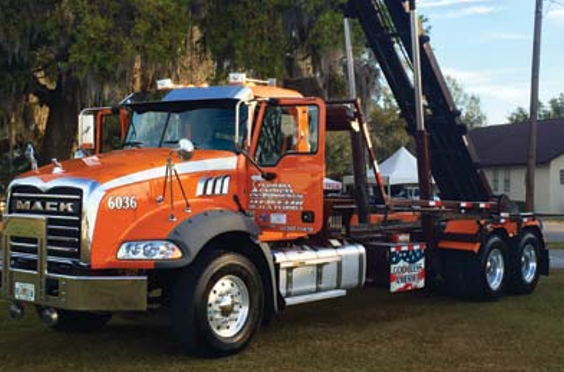
Over the past 10 years, technological and emission controls have changed the dynamics of truck maintenance. I have had similar articles in the past pointing to these changes and how they can affect an operation. The waste industry now has diesel, natural gas, gasoline and even battery powered engines running trucks on today’s streets. All of them have their challenges, but for the sake of this article we will stick to diesel technology.
Trucks from a “Pre-Regen” Era
Prior to emission changes that started to show up in 2007, diesel engines had less restrictions or technology affecting their everyday users. If cared for properly, any waste trucks prior to 2007 are trucks worth putting money into and maintaining them. In our roll-off division, 50 percent of our trucks are “pre-regen” era. We have owned and maintained these vehicles since day one. Changing engine oil preventatively every 250 hours and having a strict driver training and maintenance program can ensure the longevity.
Our oldest front line roll-off truck is a 2004 Mack. It has 677,676 miles as of writing this article and runs five days a week strong. Every service has a 250-point inspection checklist, along with documented oil samples to catch problems before they become disasters. If you are lucky enough to have a strict program in place, these trucks will run for as long as you maintain them and have no need to be replaced. It used to be the saying that if a truck lasted you 10 years, it was good. This truck is approaching 14 years. When, and if, the time comes, in my opinion, it is worth the $40,000 average investment to revamp this truck from engine to chassis. The alternative is a $190,00 to $250,000 investment of a brand-new truck. Do not get me wrong, the new ones today do not feel like work to the operator, but the tried and true 2004 will still get the job done. The older trucks receive the same treatment as the new ones: chromed up and fresh paint jobs. In my opinion, drivers will help take pride in equipment when they see the company takes pride, even in their oldest truck.
New Trucks Acquired
During a recent acquisition, we took over a 2009 International rear loader, with only 100,102 miles on the odometer. On first glance, I was ready to trash this truck. It appeared to have been maintained and repaired with items you would find in a household laundry room (ducttape, electrical tape, self-tapping screws, etc). After some weeks of TLC by our hardworking staff and about $15,000 to $20,000 in projected costs, we will have a really good spare/front line truck. We have done everything from injectors, electrical harnesses, huey pump, alternator, batteries, LED lights, new transmission, brakes, tires, airlines, and soon to be body repair and hydraulic cylinder repairs.
It is a safe bet to say that the previous owners of this truck did not maintain them to our standard. It appears we were able to get our hands on them before anything major happened. With the cost of new trucks rising, if you can trust your maintenance staff, and can afford to invest money into an aging fleet, I would recommend to do so. Reliability has nothing to do with the age of the truck; it lies in the skill of the operator and maintenance program in place. A new truck, not maintained, could and will cause more headaches than “old Betsy”. Manage your fleet and they will stick around; ignore them and they will ignore you. | WA
John Paglia, III is a 4th generation garbage man. Before he climbed the ranks to become Florida Express Environmental’s (Ocala, FL) General Manager, he had a successful career in college and professional athletics. John has been around the garbage industry since his car seat days. Currently, John is focused on growing his company and offering the highest level of customer service and prolonging the world that we live in today. John wakes up every day knowing the impact professional haulers have on their community is far greater than most realize. He can be reached at (352) 629-4349, e-mail John3@ floridaexpress.us or visit www.floridaexpress.us.